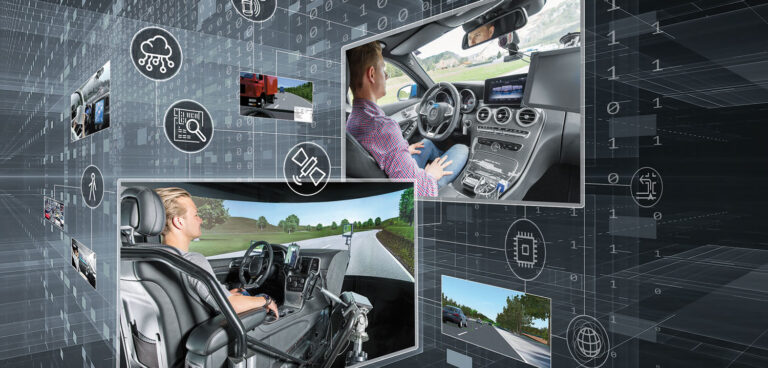Combining advanced environment simulation with evaluation and data analysis, the Austrian-based consulting company is identifying critical driving scenarios for faster vehicle development
For autonomous driving to be developed further, validation must cover a huge amount of test scenarios, in other words several hundreds of millions of test kilometers. Accomplishing this with conventional tests on testbeds and the road would take many decades and is therefore not feasible.
ADAS Competence Center in Graz, Austria, founded last year by AVL, offers a trend-setting solution: it combines a strikingly powerful simulation environment with cutting-edge evaluation and data analysis methods. Critical driving situations are identified, analyzed and evaluated in terms of function as well as perceived safety. Each week up to 10 million autonomously driven test kilometers can be covered.
Virtual testing is the key to shortening development times for autonomous driving systems and advanced driver assistance systems. These tests make it possible to reproduce selected road scenarios based on targeted parameter variations and run such scenario simulations substantially faster than in real time. With the help of the latest cloud technologies, the validation of automation features is executed up to one hundred times faster than on the road.
Via connected AVL test systems, reality is fed into the simulated driving environment: in the AVL-ADAS driving simulator, the vehicle and its environs exist virtually, whereas driver and cockpit are real. Within these safe surroundings, critical situations are analyzed in order to extract the information needed for further system development.
Once an autonomous vehicle has successfully accomplished these test scenarios, it can undergo real-world validation in real vehicles on especially equipped test tracks. For its ADAS customer projects, AVL has access to around 500km of highways which the Austrian federal government approved for autonomous driving in early 2017. Throughout all test phases, the highly automated evaluation tool AVL-DRIVE-ADAS is used. Thanks to the consistent comparability of results, the tool enables uniquely target-oriented developments.


